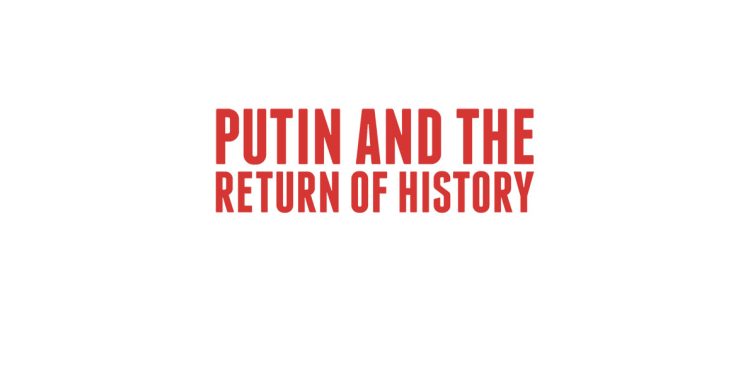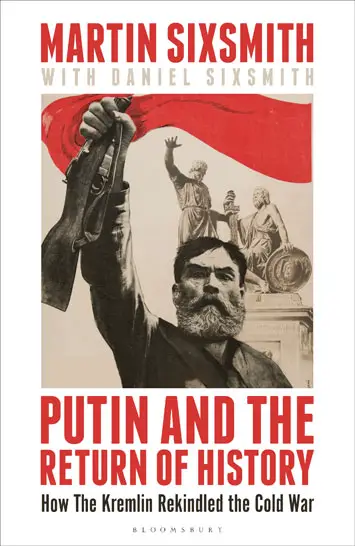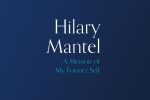Putin and the Return of History by Martin Sixsmith, with Daniel Sixsmith – Review

By Barney Bardsley
Hard to forget the euphoria of November 1989: the fall of the Berlin Wall; the collapse of communism in Russia and Eastern Europe; and the end of the bitter, long, entrenched Cold War between West and East. A couple of years later, some pundits even declared this to be the end point of any future conflict in the region. Hence Francis Fukayama, quoted in Martin and Daniel Sixsmith’s new book, wrote confidently: “What we are witnessing is not just the end of the Cold War, or the passing of a particular period of post-war history, but the end of history as such…” From now on, argued Fukayama, Western liberal democracy will be the “final form of human government.”
Fast forward to February 2022, with Putin’s wholescale invasion of Ukraine – and the rise of the extreme Right across the whole of Europe – and it’s clear to see how naive this statement was.
Martin Sixsmith, together with his son Daniel, is here to give us a detailed, even forensic account of just why the West got it so wrong, and of how complex and tortuous the connection is between Russia and Ukraine. They delve deeply, too, into the strange psychology of Vladimir Putin himself – and these glimpses of the man behind the mask form the most compelling parts of a deep and complicated book. As we go with the authors through the twists and turns of recent Russian politics and history, it becomes harder and harder to see how any of this can be peacefully resolved any time soon – if ever. It makes for grim reading, indeed.
Because of its geography – and due to the various peoples who have moved across its lands – Ukraine has always had a conflicted identity: sometimes European centred, sometimes autocratic and distinctly Russian. Its name – Ukraina – literally means “the land on the edge”.
For Putin, however, the territory is indisputably Russian, and he has never overcome his resentment at the way the Soviet Union was carved up, post-1991, with many former Soviet republics, notably Ukraine itself, claiming independence. He is bitter, too, at the arrogance of the West, which took much credit for the fall of communism, but which did little to support the vulnerable and struggling new democracies emerging in its place. Russia felt belittled. In time, resentments hardened into determination. Ukraine, seen by Putin as a strategic pawn in the standoff between Russia and the western allies, has become the scapegoat in his quest to get even and wrest back control.
“Intelligent and detailed”
 As well as analysing Putin’s personal motives and Machiavellian strategies, the book takes us on a detailed journey through Ukraine’s history and development, from the beginning of the twentieth century, through to the bloody battles for independence in the twenty-first. It makes this compelling point: “Putin’s fear of revolution in Ukraine – expressed in anger, mockery, threats and, finally, military intervention – is seemingly fuelled by a persistent dread that the same practices (of revolution) will be transferrred to Russia.”
As well as analysing Putin’s personal motives and Machiavellian strategies, the book takes us on a detailed journey through Ukraine’s history and development, from the beginning of the twentieth century, through to the bloody battles for independence in the twenty-first. It makes this compelling point: “Putin’s fear of revolution in Ukraine – expressed in anger, mockery, threats and, finally, military intervention – is seemingly fuelled by a persistent dread that the same practices (of revolution) will be transferrred to Russia.”
Thus, Ukraine is not just lost Russian territory in Putin’s eyes, but a template for what might happen throughout the whole of the former Soviet Union. Seen in this light, Putin – and the country he rules over – is in an existential fight for survival. Such paranoia is not something that can easily be solved at the negotiating table.
Putin’s response to this threat is not just to behave as the cold blooded Soviet KGB officer he once was – authorising the killing of opponents not just on home soil, but abroad too, including in the UK – but to go further still, and to utilise the fascistic mechanisms of a latter-day tsar. Nothing will do, but total control.
Oleg Orlov, chair of Russian human rights organisation Memorial, gives this telling quote in the book’s conclusion: “Russia has already been thrown out of the twenty first century, and not even into the twentieth – but back into the nineteenth.” Putin, tsar of all the Russias? In his dreams.
Martin and Daniel Sixsmith offer a scholarly and meticulous account here, not just of the current situation in Ukraine, but the complex circumstances which lay behind it. Most of all, they allow us to gain insight into the thinking and attitude of the man responsible for this vicious and enduring conflict: Vladimir Putin himself. Never sensationalist – and not an easy read – this is an intelligent and detailed disquisition on one of the most ruthless and cold blooded warmongers of our modern era.
‘Putin and the Return of History’ by Martin Sixsmith with Daniel Sixsmith is published by Bloomsbury









